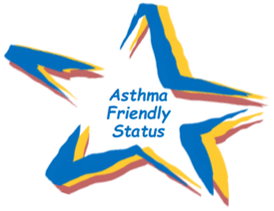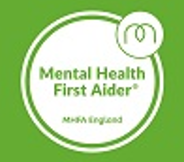Putting children at the heart of the recovery.
Following the Coronavirus pandemic and subsequent lockdown it is hard to gauge the full impact the situation is having on children’s mental health and wellbeing. You may notice new and different behaviours in some of your pupils as they readjust, recover and move forwards. It is important to normalise that it’s ok to feel anxious at this time. Change can be disruptive, and people respond in different ways, but all of us will face challenges, both personal and professional, over the coming weeks and months. We cannot overestimate the importance of looking after each other and supporting all of our wellbeing at these difficult times.
Some children may have enjoyed having more time and sharing new experiences with family, some may have established new routines and developed new skills such as building resilience, problem-solving abilities and new coping strategies. However, the pandemic will have affected mental well-being in various negative ways. Possible negative impacts of the coronavirus pandemic on the mental well-being of children and young people include:
How might these experiences affect pupils when they return to school?
- Fear, anxiety and uncertainty: for family and friends; going to school; spreading or catching the virus; being separated from their families; maintaining social distancing in the school environment; whether schools might close again
- Transition: school will not be the same; “enjoyable” and social aspects of school may not happen or will be different; pupils may need to manage new routines and expectations; new class teachers and worries about moving to new year group
- Relationships: rebuilding, changing and maintaining relationships with peers and adults.
- Self-regulation, concentration and engagement.
- Adapting: to routines and boundaries of school, including school rules. Teachers may notice unusual behaviours in their pupils: children may be jumpy, volatile, hyper vigilant or they may find it hard to settle. There will also be children who become withdrawn or who do not want to come to school. Other signs linked to anxiety about managing transitions include irritability, feeling overwhelmed, feelings of agitation or anger, not being able to regulate emotions, becoming easily tearful or a lack of concentration.
Some simple strategies:
• Create a sense of safety in school by providing structure, routine and enjoyable activities.
• Provide opportunities for pupils to talk to each other and with trusted adults about their experiences of lockdown. It would be useful to have a ‘feelings’ display where children can share how they feel.
• Support friendships and provide time and space for pupils to reconnect with each other and with school life.
• Listen to pupils and use school council to seek feedback and opinions from children and young people.
• Normalise uncertainty while also recognising and validating emotions.
• Provide written and visual information that sets out how things will be the same or different and help pupils to see what they can control.
• Talk about coronavirus and related worries, use this as an opportunity to correct inaccurate information.
• Set an example of calmness, promoting calming activities through PE, art and music, where possible.
• Ensure academic needs are met but don’t put too much academic pressure on pupils.
• Support families with their own stresses and anxieties, which will in turn help pupils.
• Be flexible and supportive when applying behaviour policies
Fear, anxiety and uncertainty
Here are some ideas of how you can support your children who may be feeling anxious at this time:
(For some resources please look in Staff files – Clare Sheldon – Emotional First Aid)
• Normalise worry as a reaction to not knowing. Help children to identify their physical signs of anxiety and tell them about the support options that are available to them. Communicate clearly and consistently.
• Help children to identify positive coping strategies that help them to manage their anxiety, such as taking regular breaks, doing physical activity, practising breathing exercises, talking about or expressing their emotions, having a regular routine and connecting with others.
• Be calm but supportive and try not to get drawn into the child or young person’s emotions. It helps if you stay focused on the practical: model positive ways for managing anxiety.
• Praise and reward small (and big) successes when children face their anxieties. It can help them to remain positive.
• Remind children of the support options available to them in school and who they can speak to.
Relationships
Relationships will be a key part of helping children and young people to reintegrate into school life. As a consequence of the pandemic, many pupils will have been unable to see their friends, extended families, teachers and other trusted adults. As relationships are an integral part of social and developmental growth, any disruption to their relationships can be very challenging to their well-being. In supporting pupils with their relationships, schools should consider that:
• It is likely pupils will be navigating ways to re-establish connections with their peers
• Pupils may need time to establish or re-establish relationships with school staff.
• A range of interventions that give pupils the chance to reconnect with their peers and to create new social networks would be beneficial.
• Having a sense of belonging will be important if pupils are to feel emotionally safe and be able to re-engage in learning.
Self-regulation, concentration and engagement
Some pupils may need help to settle back into learning. It is likely that many pupils will have had less or a limited structure over the last few months, and so will need time to readapt. Pupils’ worries about returning to school life may also affect their levels of concentration; give pupils time to settle. In supporting pupils with this, schools should consider:
• Finding ways for teachers to reconnect and reach out to their pupils before expecting them to engage in learning. Exploring ways in which they could help pupils to feel comfortable and safe in their classrooms, with their peers and teachers, before the emphasis moves to academic study.
• Creating an opportunity to share successes and achievements during lockdown (both academic and non-academic) or to reflect on and process some of their experiences.
• Asking pupils about their experiences of remote learning – what did they like and not like? Involving them in shaping what their return to school looks like could be hugely empowering and is likely to help with engagement.
• Praising small achievements and offering reassurance will help to support pupils during this transition, as some may be worried about not having kept up-to-date with schoolwork.
• Some pupils may struggle to maintain the level of concentration required in school and there may be a need for movement breaks to help with this.
Other things to be prepared for:
We have a variety of ways to support the children on their return - PSHE and targeted interventions and pastoral care.
• Prepare for a potential increase in disclosures from those who have experienced or witnessed trauma or other difficulties during the lockdown, following PSHE lessons or when using Emotional First Aid resources.
• Re-establish ground rules and ensuring the classroom is a safe place. Pupils need to feel bonded again as a group, trust their teacher and feel safe in exploring difficult issues.
• Talk about the experiences pupils have had in a distanced way, through scenarios and fictional characters rather than open discussion about individual pupil experiences.
• To support pastoral care processes, lesson time might be used to survey pupils about what they need and their main worries and feelings about returning to school (this can inform both immediate teaching and also develop future PSHE planning).
• Focus immediately on areas such as relationships and emotional well-being, but also consult pupils on what they need or want to cover beyond this. Use local health data and guidance on the impact of covid-19 on children to refine priorities. This can be followed by:
- Transition including learning routines and skills to help settle back into school life
- Friendship including re-establishing friendships that have been at a distance and managing new friendship issues
- Promoting well-being including managing anxiety, promoting positive well-being, coping strategies and dealing with change
- Coronavirus media coverage – looking at facts, rumours and speculation
- Staying safe physically and emotionally including online
- Identifying children who may need targeted support for bereavement and other instances of loss and change such as family separations and parental unemployment.
Your well-being
We cannot overestimate the importance of looking after each other and supporting your own well-being during these difficult times. Change can be disruptive, and people respond in different ways, but all of us will face challenges, both personal and professional, over the coming weeks and months. Being mindful of the need to take care of your own well-being is the best place to start.
Infographic: Building resilience in children and teens (Family Lives)
The Family Lives charity aims to offer all parents somewhere to turn before they reach crisis point. Crisis support, provided for over 40 years through their helpline, has always been at the heart of what they do.
Family Lives also have an excellent website to help parents with the ups and downs of family life. One useful infographic is this one about building resilience in children and teens. You can download it here: https://www.familylives.org.uk/advice/your-family/wellbeing/building-resilience-in-children-and-teens/
The Family Lives parents' helpline is available Monday to Friday, 1.30 - 9pm on 0808 800 2222.
The website can be found here: https://www.familylives.org.uk/
London’s free NHS mental health crisis lines
Young people and their families in need of urgent help with their mental health can get free 24/7 support from trained NHS professionals by telephone. The last 18 months have been particularly hard for young people’s mental health and wellbeing. The NHS’s survey of children and young people’s mental health early this year found that one in six had a probable mental disorder – up from one in nine in 2017. Four in ten 6-16 year olds said their mental health had got worse since 2017, with only a fifth (21.8%) saying it had improved.
As a result, there has been an increase in people needing urgent support. Every mental health trust in London has put in place a dedicated phone line, supported by trained mental health advisors and clinicians, and open day and night, 365 days a year. The lines are free to call, and trained advisors can provide immediate help or signpost callers to other sources of support if necessary.
Please note that the relevant number for young people to call is dependent on the borough that their GP is based. The CAMHS SPA number for those in Hillingdon, Harrow, Brent, Westminster, Kensington and Chelsea is: 0800 0234 650
Online Parenting Courses - Family Lives
Being a parent has never been easy. There are no manuals for it, and previous generations may not be able to provide the insight you're looking for. The family unit is more dispersed than ever, with some families existing hundreds of miles from what may be called a 'core unit'. The rapid pace of societal change in the UK rapidly outstrips the knowledge of the immediate past. The result is that many parents may find themselves lost in a maelstrom of contradictory advice. For adults, time has never been more compacted. Family Lives has produced a series of online parenting courses, to make this challenge a little easier. If interested please follow the link below:
https://www.familylives.org.uk/how-we-can-help/online-parenting-courses
Family Lives offers a confidential and free* helpline service for families in England and Wales (previously known as Parentline). They can be contacted on 0808 800 2222 for emotional support, information, advice and guidance on any aspect of parenting and family life. Their website is also a rich source of useful support and advice.
(* Free from landlines and most mobiles)












